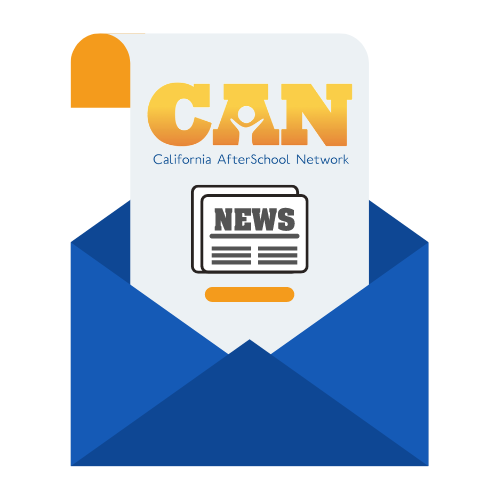Equity Evolution: CAN’s Growth Story
Vol. 10
Are you Interested in Advancing CAN’s Equity Journey?
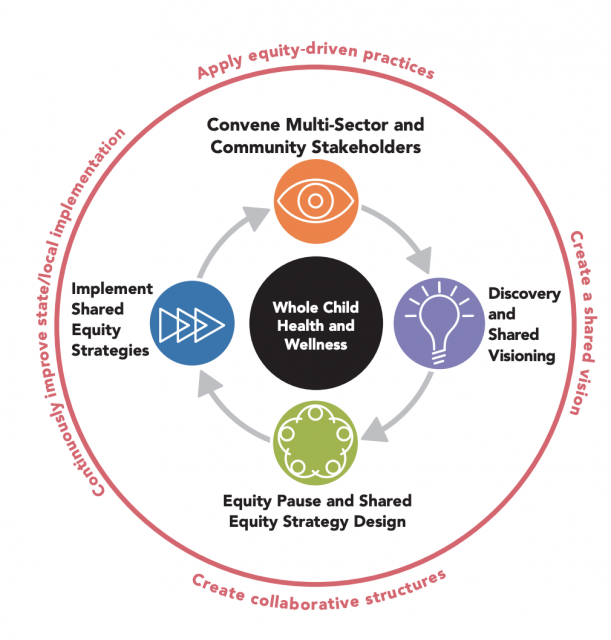 In 2007 CAN was founded under
the motto, “of the field, for the field.” Since its
inception, CAN has sought to live the
Network Principles of Mission, not Organization;
Humility, not Brand, Trust, not Control; and Constellation, Not
Stars. CAN was formed as a “big tent” for multiple
entities to collaborate in support of the success of the
Out-of-School Time (OST) field.
In 2007 CAN was founded under
the motto, “of the field, for the field.” Since its
inception, CAN has sought to live the
Network Principles of Mission, not Organization;
Humility, not Brand, Trust, not Control; and Constellation, Not
Stars. CAN was formed as a “big tent” for multiple
entities to collaborate in support of the success of the
Out-of-School Time (OST) field.
CAN was formed as a public-private partnership between the Charles Stewart Mott Foundation and the California Department of Education’s After School Programs office (now the Expanded Learning Division). This national movement has grown since CAN’s inception and CAN is now part of a national network of 50 Statewide Afterschool Networks.
CAN was launched in conjunction with the advent of a great expansion of Expanded Learning programs in California, the After School Education and Safety (ASES) program. CAN’s early work addressed critical gaps in the field impacting all interest holders. CAN convened the field to create a framework for program quality that could be used with low stakes to support planning (the California After School Program Quality Self-Assessment Tool). CAN ensured Older Youth Programs had access to resources and Technical Assistance including the Step-Up (High School), Amp Up (Middle School), and Ultimately Up Your Game for Older Youth conferences. CAN convened Rural Summits that made recommendations for minimum grants for small rural schools and the need for transportation funding, both of which are currently in place. Additionally, CAN sought to increase access to high-quality STEAM learning for Expanded Learning program participants.
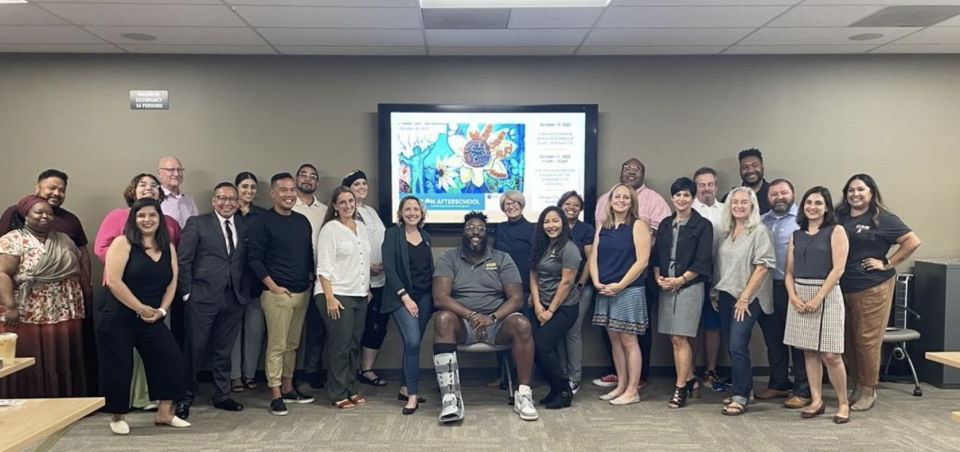 An important component of CAN’s
organizational design is that it was created as a
Fiscally Sponsored program of the UC Davis School of Education.
CAN is now a
Collaborative Impact Partner (fiscally sponsored project) of
the Foundation for
California Community Colleges. This organizational structure
allows CAN to maintain a geographically, professionally, and
culturally diverse Leadership Team
(LT) that is increasingly representative of the OST field. This
also allows CAN’s staff team to
dedicate the bulk of its capacity in support of the field because
many of the back office administrative elements are supported by
our Collaborative Impact Partner.
An important component of CAN’s
organizational design is that it was created as a
Fiscally Sponsored program of the UC Davis School of Education.
CAN is now a
Collaborative Impact Partner (fiscally sponsored project) of
the Foundation for
California Community Colleges. This organizational structure
allows CAN to maintain a geographically, professionally, and
culturally diverse Leadership Team
(LT) that is increasingly representative of the OST field. This
also allows CAN’s staff team to
dedicate the bulk of its capacity in support of the field because
many of the back office administrative elements are supported by
our Collaborative Impact Partner.
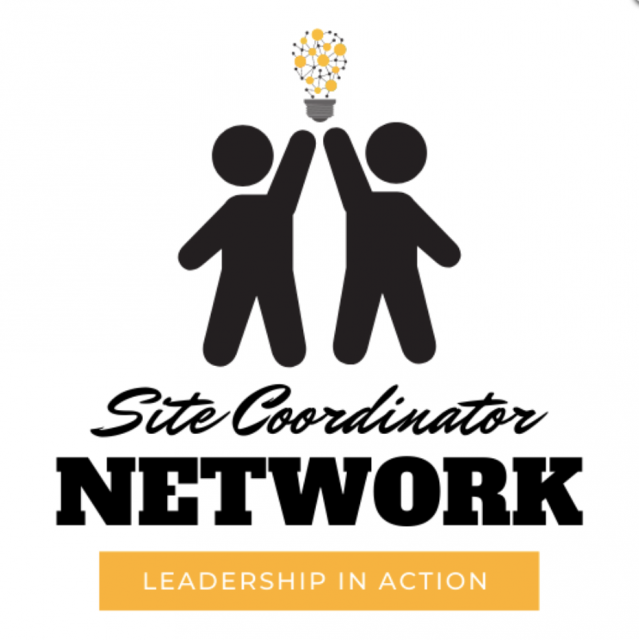 In 2017-18 the CAN LT made two
critical decisions: CAN needed to strengthen its lens of
equity and justice; and CAN should pursue a multi-sector
collaboration to support whole child health and wellness. In
support of this vision, CAN enlisted the support of Equity Meets Design (EMD),
an organization that asserts racism and inequity are products of
design, and thus they can be redesigned. EMD informed
what CAN does through its new strategic
direction and how CAN does it through
clear governance informed by equity-driven principles. As part of
this process, CAN garnered field voice, including from the
Site Coordinator
Network, to inform CAN’s
Strategic Direction.
In 2017-18 the CAN LT made two
critical decisions: CAN needed to strengthen its lens of
equity and justice; and CAN should pursue a multi-sector
collaboration to support whole child health and wellness. In
support of this vision, CAN enlisted the support of Equity Meets Design (EMD),
an organization that asserts racism and inequity are products of
design, and thus they can be redesigned. EMD informed
what CAN does through its new strategic
direction and how CAN does it through
clear governance informed by equity-driven principles. As part of
this process, CAN garnered field voice, including from the
Site Coordinator
Network, to inform CAN’s
Strategic Direction.
Furthermore, in 2019 CAN convened the Whole Child Health and Wellness Collaborative. The Collaborative created a shared, multi-sector vision of compassionate communities that collaborate with Expanded Learning programs to support whole children, families, and communities so that every young person, and every family, is well-known, well-cared for, and prepared to thrive. The Collaborative’s work continued into the COVID-19 pandemic. Throughout that period the need to shift policies rooted in white supremacy and systemic environmental, economic and racial violence, oppression, and injustice became clear. This is because our current systems have resulted in inequitable access to opportunities, health care, mental health services, social services, healthy food, and safe, equitable places to learn and play.
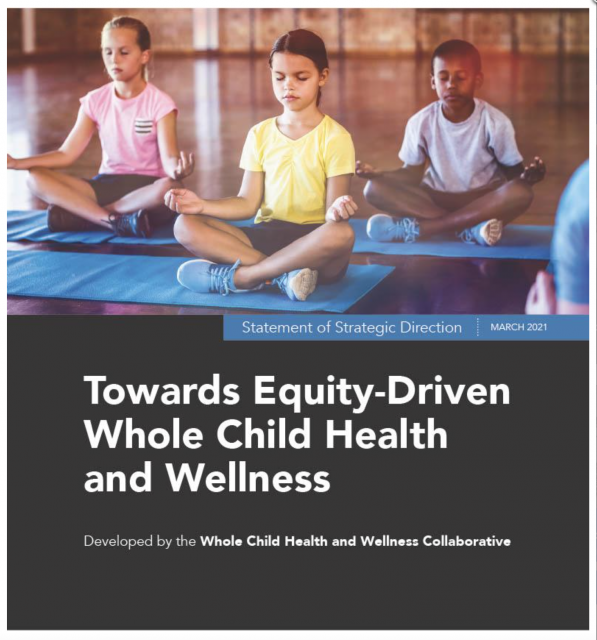 This collaborative asserted
through its
Statement of Strategic Direction Toward Equity-Driven Whole Child
Health and Wellness and
Call to Action that the outcomes of our current
systems were not sufficient. They called for a statewide
“equity pause” to assess current outcomes and shift policies
to center children, families, and communities. They called for
adequate support and compensation for a multi-sector workforce.
The Collaborative’s recommendations included creating the
conditions for cross-sector collaboration and resource sharing to
weave siloed efforts in support of shared health and wellness
goals.
This collaborative asserted
through its
Statement of Strategic Direction Toward Equity-Driven Whole Child
Health and Wellness and
Call to Action that the outcomes of our current
systems were not sufficient. They called for a statewide
“equity pause” to assess current outcomes and shift policies
to center children, families, and communities. They called for
adequate support and compensation for a multi-sector workforce.
The Collaborative’s recommendations included creating the
conditions for cross-sector collaboration and resource sharing to
weave siloed efforts in support of shared health and wellness
goals.
A theme across this work is to take a human-centered approach to our work, and “design at the margins” to ensure our efforts support California’s most vulnerable children, families, and communities. To support equity-driven facilitation, CAN’s staff and Leadership Team have participated in trainings and intensive professional development from the National Equity Project and Equity Meets Design. In order to support human-centered facilitation, CAN’s staff are also trained in Compassionate Systems tools and approaches.
CAN has formalized its commitment to Equity and Justice through its new Guiding Principle: CAN is Committed to Equity and Justice. Key elements of this commitment to equity and justice include:
- The Quality Standards for Expanded Learning in California
highlight that quality programs create an environment in which
students experience values that embrace diversity and equity
regardless of race, color, religion, sex, age, income level,
national origin, physical ability, sexual orientation and/or
gender identity and expression. As leaders in our field, we seek
to perpetuate these conditions for children, families, OST
professionals, and communities.
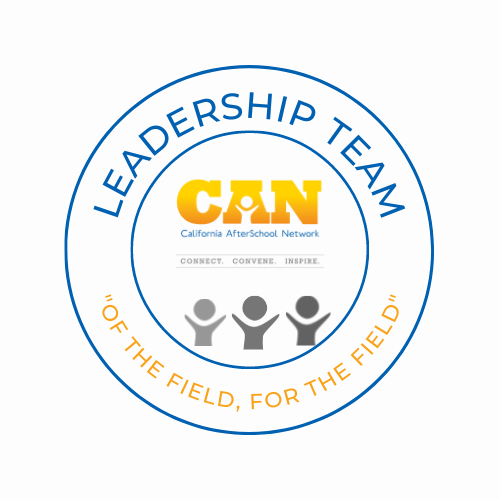
- Serving as CAN Leaders requires us to acknowledge our history and to act intentionally as geographically, culturally, and professionally diverse allies to bring about a more just and equitable future.
- CAN actively works to create a NEW WAY OF BEING, one that is human-centered, socially just, and anti-racist. We recognize that this approach supports the success of all people, and devalues none.
- It is incumbent upon us as CAN Leaders to be open and inclusive of a diversity of perspectives, engage in personal reflection, and examine how our biases show up in our leadership.
- While CAN advocates and lobbies for policies supportive of Out-of-School Time (OST) access and quality, we also acknowledge that OST programs exist within a broader context that impact the lives of the children, youth, families, and communities we serve. Therefore, we advocate and lobby for just and equitable human-serving systems including and beyond OST.
If you share our commitment to equity and justice, and if you are inspired by CAN’s Strategic Direction, please consider joining us. We are happy to announce the release of our Leadership Team application today for terms beginning in 2023-24.
In partnership,
Jeff Davis
Executive Director
California AfterSchool Network

